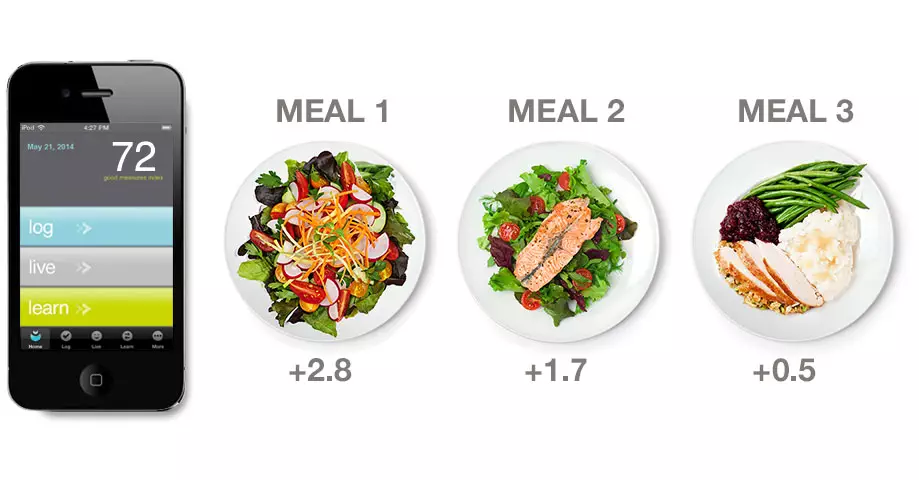I’m going to make a confession.
Working with a dietitian, historically, has not been one of my favorite parts of the bariatric journey.
I’m a rebel, Foodies! I don’t want anyone telling me what to do. And telling me what to EAT? Get outta here!
But if there’s one truth I’ve had to accept above all others in my 9+ years of post-op life, it’s this. Even on my best day, I still have a lot to learn about nutrition.
It’s true! I love food. You guys know that. But I’m also a post-op. And I’m a post-op who identifies as a food addict. So for me especially, having some outside counsel to gut-check (pun intended) my eating decisions is invaluable! But it wasn’t always that way.
How not having a dietitian bit me in the butt…
There was a time when I avoided seeing a dietitian. About two years after my surgery, the dietitian associated with my bariatric practice moved to another state and I didn’t rush to find a new one. Until…
Old habits started creeping back. Hunger started creeping back. Cravings started creeping back. Scared the holy mess out of me!
Finally, I got tired of living in fear that I was going to slide back into my pre-op self (which, by the way, is something of an unrealistic fear but still…it felt real enough!) and see a dietitian. Which meant I had to find a new dietitian (more on that in a moment). But I was successful in finding someone I vibe with and it’s been a world of help. A good bariatric dietitian can not only give you nutrition advice, they can help you with meal planning, matching cravings to nutrient needs, setting realistic goals, and holding you accountable to them.
I’m back on track now, but I thought some of you might be sitting where I once was. Thinking, “I don’t really need my dietitian anymore. I know the ropes!” That could very well be and if you are doing well, keep on keepin’ on! But if you can identify with any of the following situations…you may want to get back in touch with your dietitian!
#1: You’re able to eat more than you used to be able to eat.
Now my unprofessional opinion on that is this. Firstly, we are not supposed to be on the “two-bite plan” forever. We’re just not! Our stomachs heal after surgery and eventually we can start eating more food than immediately after our operations. That’s normal. However. If you find yourself being able to eat way too frequently or way too much, you probably need to troubleshoot. There could be any number of reasons for the increase in your eating capacity (we always want to assume our stomachs have stretched but that’s actually rarely the case), so it’s best to enlist help.
So if you’re able to eat more than you used to be able to eat, and it concerns you, go see a bariatric dietitian!
#2: You have (or have developed) a food intolerance.
I see this happen to folks all the time. And it can even happen years after surgery. I particularly see this in relation to milk. For weeks, months and years, cow’s milk is fine for folks…until it isn’t! Now some food intolerance issues don’t seem like a big problem. You may even know how to work around them. But if you develop an intolerance to a food that was a central part of your eating plan, you’ll want to enlist help learning how to use different ingredients to make the things you like to eat. Go see a bariatric dietitian!
#3: You’ve been eating lots of unhealthy food and you don’t know how to stop.
All kidding aside for a minute. If you can relate to that statement there’s something important I want you to know. You are not alone! So many post-ops struggle in silence with this. Whether it’s sweet food or salty-crunchy food, so many of us fall prey to it – and it hooks us in just like it did so many times before. And what I see is a lot of post-ops focusing their energy on exacting guilt and shame upon themselves for being human. But not only is that unkind to yourself – it’s supremely unproductive. If you truly want to stop, you probably need some help. A good bariatric dietitian will understand, won’t judge you, and will help you figure out how to take the edge off of cravings with healthy options. In essence, they’ll help you make a plan!
#4: You find yourself having very strong, very specific cravings.
Now you may think that’s the same as the previous one but it’s not. Sometimes we have really strong cravings that are associated with a nutrient our bodies need. But we may not be able to connect the dots back to that need by ourselves. Some cravings are fairly innocent (like craving ice cream when you need calcium), but others can be very displacing (like craving dirt when you are iron deficient). If you find you are having very strong, very specific cravings that you don’t understand, see a bariatric dietitian. They can help you get to the bottom of it and determine if you need to see your doctor for blood work or other tests.
#5: You have food apathy.
Food apathy is that sense of just not caring whether you eat or not. It can be dangerous! Why? Well for a few reasons. First, because you need to eat in order to lose weight. The body works on a pretty predictable system: eat too many calories and those calories are stored as fat. Eat too few calories and your body slows down fat burning. Eat just the right amount of calories and your body will burn fat through activity to create weight loss. (Sorta like Goldilocks, right?) The second way I think food apathy can be dangerous is when it becomes a virtue in your mind. That is to say, when you start to associate not eating with “being good.” That mindset can get you into trouble.
(Oh I’d also be remiss not to point out that we humans are so extra special that food apathy – aka “I don’t care about eating” – can easily turn into “let’s eat nothing but Doritos!” Yeah…that can be problematic too…)
We all experience food apathy from time to time. If it happens to you, a dietitian can help you come up with a plan so that you are getting what your body needs. And they can monitor your apathy to tell you if there’s some sort of trend you should investigate with your doctor or surgeon!
What to do if you don’t have a dietitian anymore.
One comment I hear a lot from folks who are more than a few years out is this. “Well I’m not connected to my bariatric office anymore and I don’t even know who the dietitian is nowadays!”
I hear you! And let me tell you how much I hear you. As I said before, my original bariatric dietitian moved to another state. After that, I’m ashamed to say that I didn’t seek out another one for YEARS. You know why? Perception.
In my head there were so many steps. You have to check your insurance, and you have to get a list of names, you have to call them (calling people in the 2010’s? Ugh!), you have to make sure they know the nuances of bariatrics. It just seemed like a lot and I got overwhelmed. So I never did it until recently. What turned me around? We’ll talk about that in a moment but first I want to lay out a few basic options if you don’t have a dietitian anymore:
- You can ask your surgeon’s office for a referral. Many surgeon’s offices nowadays are affiliated with a dietitian so they can at least refer you there. But also ask them about other options just in case you don’t vibe with that person or your insurance doesn’t cover them.
- You can ask your primary care physician for a referral. Just make sure you stress that you’d like someone who has worked with bariatric patients. I can’t stress this enough, our bodies are always going to work a bit differently and having a bariatric dietitian means they understand that.
- You can search your insurance referral system. Many insurers allow you to filter your search in a variety of ways. If your job offers an employee assistance program (EAP) you might also enlist their help to make the search a bit less overwhelming. They can help you screen people and get all your information in one place.
Here’s how I resolved my own dilemma.
A few months ago I was contacted by a company called Good Measures. And at first glance I thought it was just another version of My Fitness Pal. But I was very, very wrong! Yes, the site does have a very robust nutrition diary component but that was just one of its many features. In addition to that, with my account, I have my very own bariatric dietitian.
But what’s more…I have a dietitian I can connect with, one-on-one, every single week. My dietitian has helped me to meal plan (believe it or not, for a food blogger, I am a piss poor meal planner!), to discover new recipes using ingredients that I like, and she’s a constant source of encouragement to me. Even on the days when I don’t do so great, she’s always supportive (which actually makes it easier for me to be 100% honest about what I eat), which is a godsend.
That’s just one of the great features about Good Measures that I want to tell you about. You can read more in my full product review!
But here’s what’s most important for you to know.
If you are struggling with your eating (too much, not enough, or anywhere in between), get help! Even if you’re 10/15/20 years post-op. Even if you think your body went back to the way it was before surgery. Even if you aren’t proud of all the choices you’ve made. Get help. You’re worth it. If you don’t believe me, just email me at nikki@bariatricfoodie.com and I’ll tell you all the reasons you are worth it!
And if you’re not sure where to start or if, like me, the whole thing seems overwhelming, definitely check out the service I mention above, Good Measures. I don’t say this lightly but…it’s changed my approach to planning and eating healthy meals!
- You can read my full review of the service here
- Or check out a demo I did where you can take a peek behind my very own account!
 Bariatric Foodie Play with your food
Bariatric Foodie Play with your food




Thanks for this kick in the butt Nik. I can relate to so many of these points you made. I had RNY in 10/2011, in Little Rock, then moved to Michigan 10 months later. I not only don’t have a dietitian ian but a support group either. Throwing guilt on yourself does NOT help. I will get a dietitian and hopefully he or she can help lead me to a great support group!
Thanks Nik! You’re the best!
Wendy
Hey Wendy,
Guilt is one of those emotions that’s natural to feel but it doesn’t really do anyone any good! I am glad you’re taking action. I’m so proud of you! If you’d like to see what I use for dietitian services (it’s really neat) sign up for that demo!
Feel like you are in my living room having a heart to heart with me …. RNY 2006 and I am having a reality check the day after my 54th birthday. Scared of the judgement by a Nutritionist! Thank you for the post 🙂
Ugh. I know that feeling all too well. But a GOOD dietitian should be your coach. They should always encourage you and keep you moving forward toward your goals!
Not sure if you noticed my invite to see what I use for my dietitian services and food tracking (it’s really neat). If you’re interested in having a look, be sure to sign up to get an invite. But either way, I understand that sentiment you expressed perfectly. Hugs.
Thank as always you hit the nail on the head you have a way of sharing and helping so many people and its a blessing. After4 years post op I’ve reached out for a dietitian I can’t seem to reach my goal on my own and I pray that she is bariatric conscious and informed
Thank you for the post ?
Just watched your live video – thanks for sharing! Sadly, even though my healthcare provider had. 6-month pre-op class & I had a great surgeon, I was never given a referral to a dietician, bariatric or otherwise. I’m definitely going to check out Good Measure. At 6+ years post-op, I need help ?
I’m so glad you checked out this post. You are not alone! I hear from so many folks who have that same situation, which is one reason I was so eager to give Good Measures a try. I *technically* have access to a dietitian but I don’t know her well and it’s been forever so I was a little shy to go in (yes, that’s probably dumb but hey…that’s my reality!) so this was a nice way to start with a clean slate.
I’m seriously relating to all of this. I still have access to my nutritionist in my bariatric clinic, I’m 3 years post op, but all of this is my reality right now. I mentally know that they are there to support me and encourage me, which they did last year when I was in. But weight has gone up this year due to my poor life choices food wise and some medication.
I’m also dealing with an inflamed achilles which is killing my or has killed my gym routine. I’m scared to weigh myself to see the damage I’ve done, yet the fact ive had to buy new clothes… shows me the damage….. I have all the time right now and I’m feeling like a sloth. The weekly check in and support might just be the kick I need and want.
As an independent bariatric dietitian, it’s good to know we are needed–the good ones anyway:-) The research shows clients using RD services lose more weight and keep it off longer. Plus, non-judgmental support for life! Thanks for shining a light on this topic Nikki!